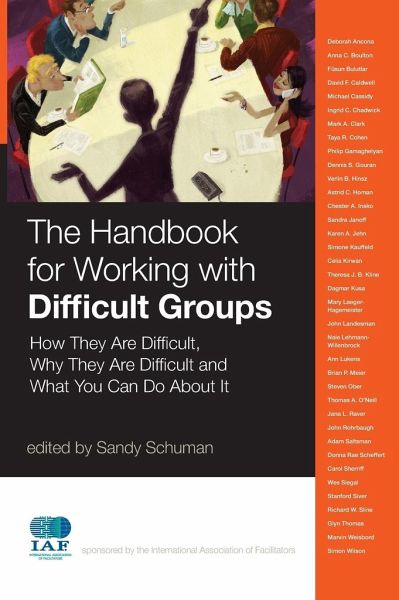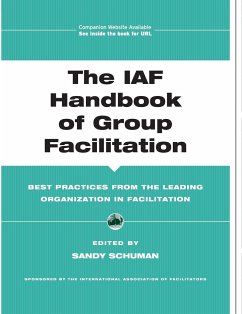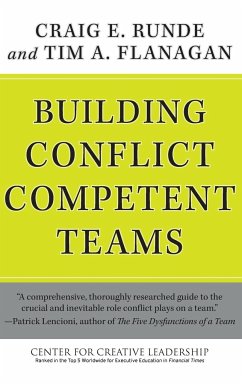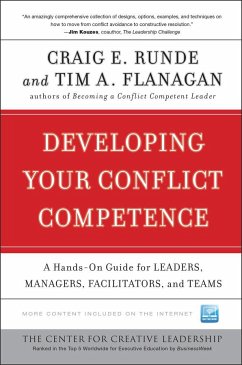
The Handbook for Working with Difficult Groups
Versandkostenfrei!
Versandfertig in über 4 Wochen
107,99 €
inkl. MwSt.
Weitere Ausgaben:

PAYBACK Punkte
54 °P sammeln!
Praise for The Handbook for Working with Difficult Groups "Beginning with a conceptual framework useful to understand effective group functioning, The Handbook for Working with Difficult Groups continues with twenty chapters, each describing a common challenge a facilitator can face, examining the research available to understand the difficulty, and then offering pragmatic interventions a facilitator can use to deal with this challenge. A must-read for any group facilitator."-David Straus, founder, Interaction Associates "If you're looking for ways to make your team more productive, you'll fin...
Praise for The Handbook for Working with Difficult Groups "Beginning with a conceptual framework useful to understand effective group functioning, The Handbook for Working with Difficult Groups continues with twenty chapters, each describing a common challenge a facilitator can face, examining the research available to understand the difficulty, and then offering pragmatic interventions a facilitator can use to deal with this challenge. A must-read for any group facilitator."-David Straus, founder, Interaction Associates "If you're looking for ways to make your team more productive, you'll find golden nuggets written just for your situation in The Handbook for Working With Difficult Groups. A compendium of research and sage advice, this book offers experienced insights into how to transform seemingly dysfunctional groups and avoid obstacles before you hit them. Should be in the library of any leader or facilitator!"-Tammy Adams, CPF, president, Chaosity LLC "This fine book contains a rich diversity of case studies, approaches and wise counsel from leading practitioners working with groups. It will help you to understand and facilitate effectively in even the most difficult situations."-Dale Hunter, author, The Art of Facilitation: The Essentials for Leading Great Meetings and Creating Group Synergy "Whether you are a facilitator, leader, or member of a group, you will gain surprising insights into why a group is difficult, and more importantly, how to recognize the cause of the difficulty and how to develop an effective response to move the group forward."-Gary Rush, CPF, president, MGR Consulting; chair, International Association of Facilitators (IAF)













